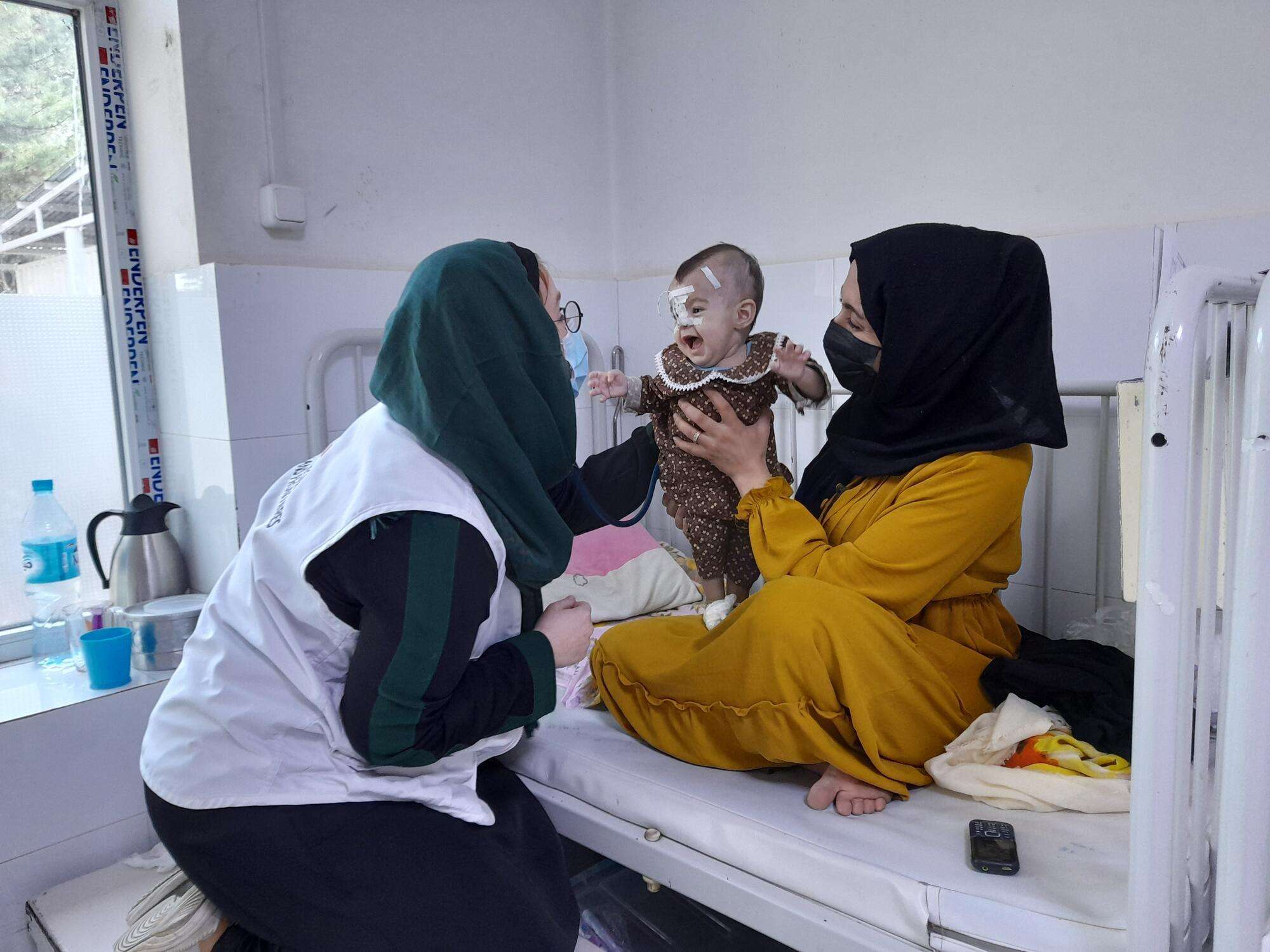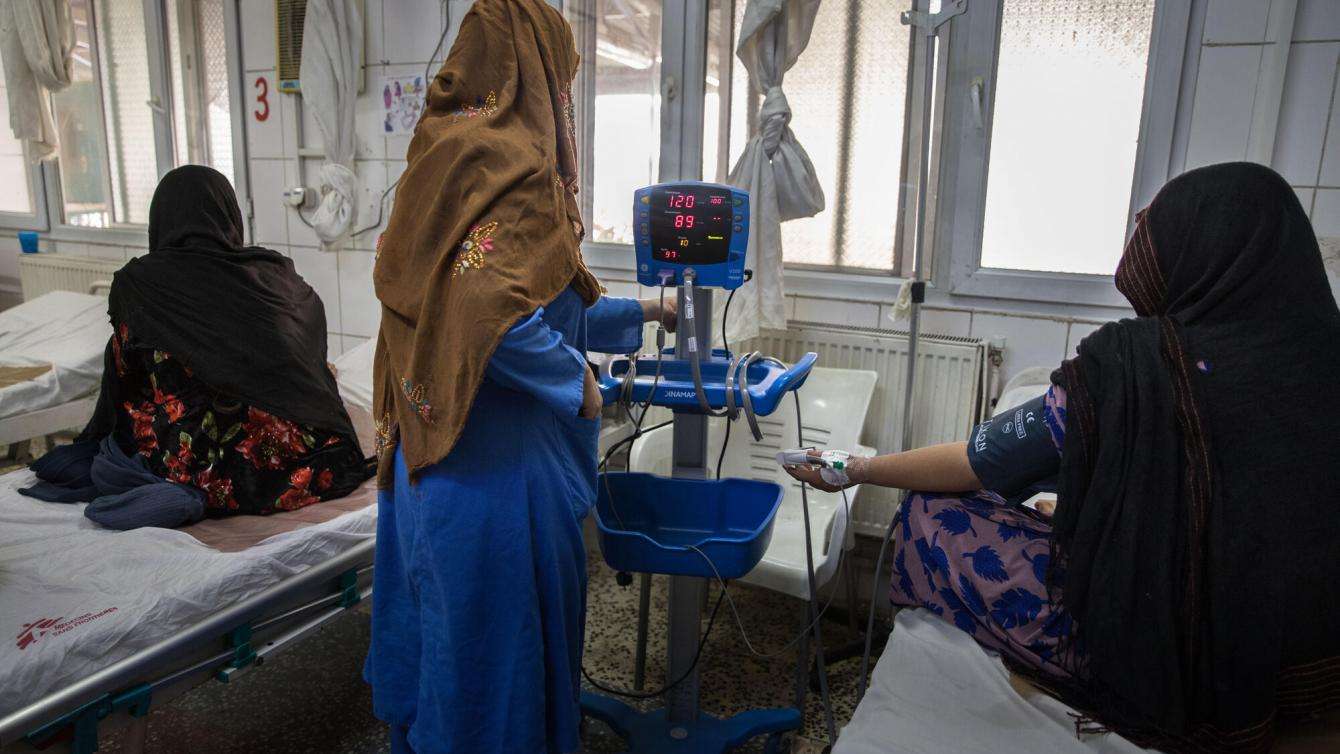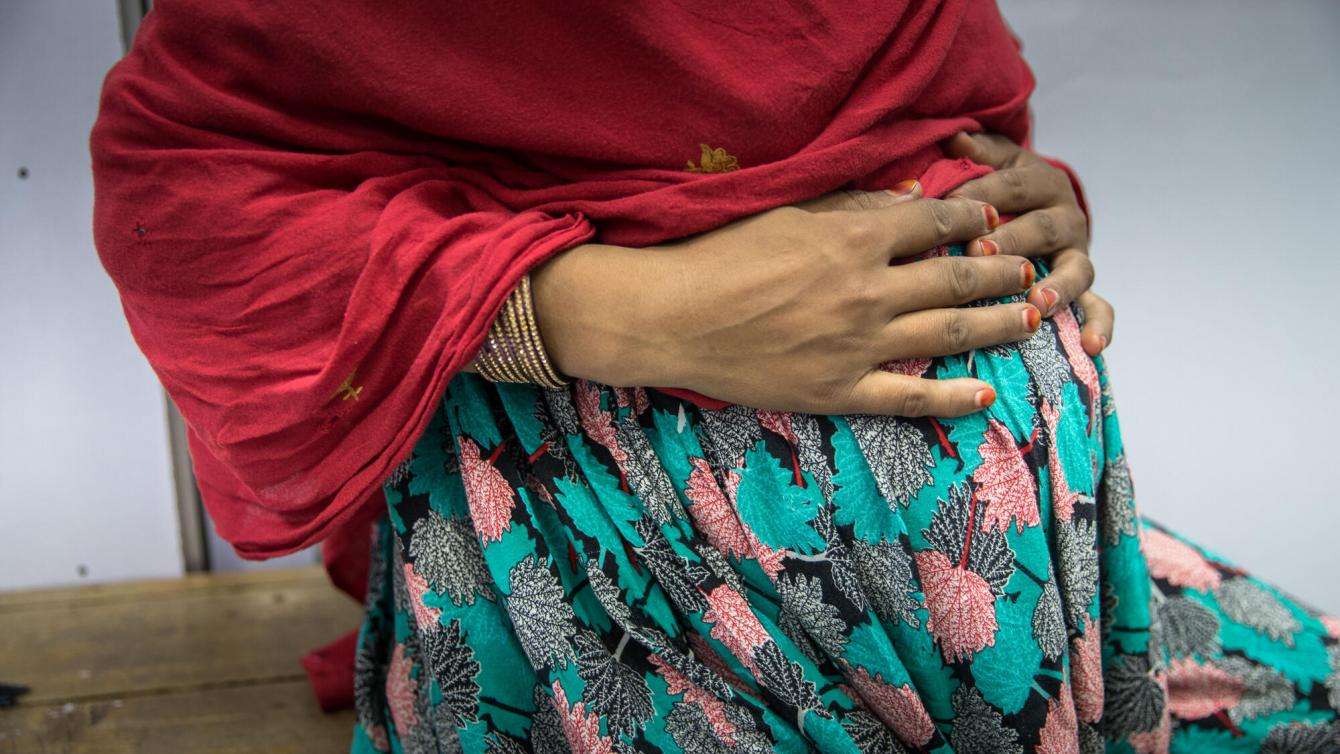One year after the transition of power in Afghanistan, the country faces a cascading humanitarian crisis. Doctors Without Borders/Médecins Sans Frontières (MSF) has expanded its medical programs in Afghanistan to meet the growing needs.
Following the withdrawal of United States military forces and the government takeover by the Islamic Emirate of Afghanistan (IEA, also known as the Taliban), international support for medical and humanitarian needs in the country declined sharply. After decades of war, Afghans now face extreme hardships due to economic collapse and other factors. The ripple effects of preexisting sanctions and additional financial measures imposed against the IEA after they took power last August are being felt by ordinary people nationwide. Food prices have soared, and many people do not have enough to eat. A prolonged drought is also contributing to food insecurity and malnutrition. Meanwhile, individuals often delay seeking health care because they cannot afford it.
Against this backdrop, MSF teams have continued to provide free and much-needed health care across the country: In August 2021, the first patients were admitted to a newly constructed trauma center in Kunduz; in September 2021, Khost maternity hospital expanded admission criteria to accept all pregnant women; in February 2022, our teams began providing care to severely malnourished children in Kabul; and in June, we swiftly mobilized to send a medical team to the areas worst affected by an earthquake that shook Khost and Paktika provinces.
MSF now works in six provinces across Afghanistan—Helmand, Herat, Kandahar, Khost, Kunduz, and Kabul—providing a range of health services, including pediatric, trauma, maternal, mental health, and drug-resistant tuberculosis care. Here’s a look back how we adapted to ensure continued medical care in all our programs, even when other international aid organizations left the country.

Adapting to provide trauma care amidst fighting
In the months leading to the withdrawal of foreign forces and the change in government, fighting intensified in many areas across the country as front lines came to the doorsteps of medical facilities. In late July, MSF’s team in Kunduz transformed its office space into a temporary trauma unit to provide emergency surgical care to people injured by the fighting.

Afghanistan: Doing whatever it takes to treat trauma in Kunduz
Read more“Much of our staff could not reach the trauma unit,” a medic remembers. “Four patients urgently needed emergency surgery at the same time. One patient died, but three survived.”
When the fighting stopped, patients were transferred to the newly opened 61-bed Kunduz Trauma Center, which had been under construction since 2018. Between January and June this year, the team there performed 1,905 surgeries and admitted 894 patients—most of whom were injured in accidents, but some were injured by violence.
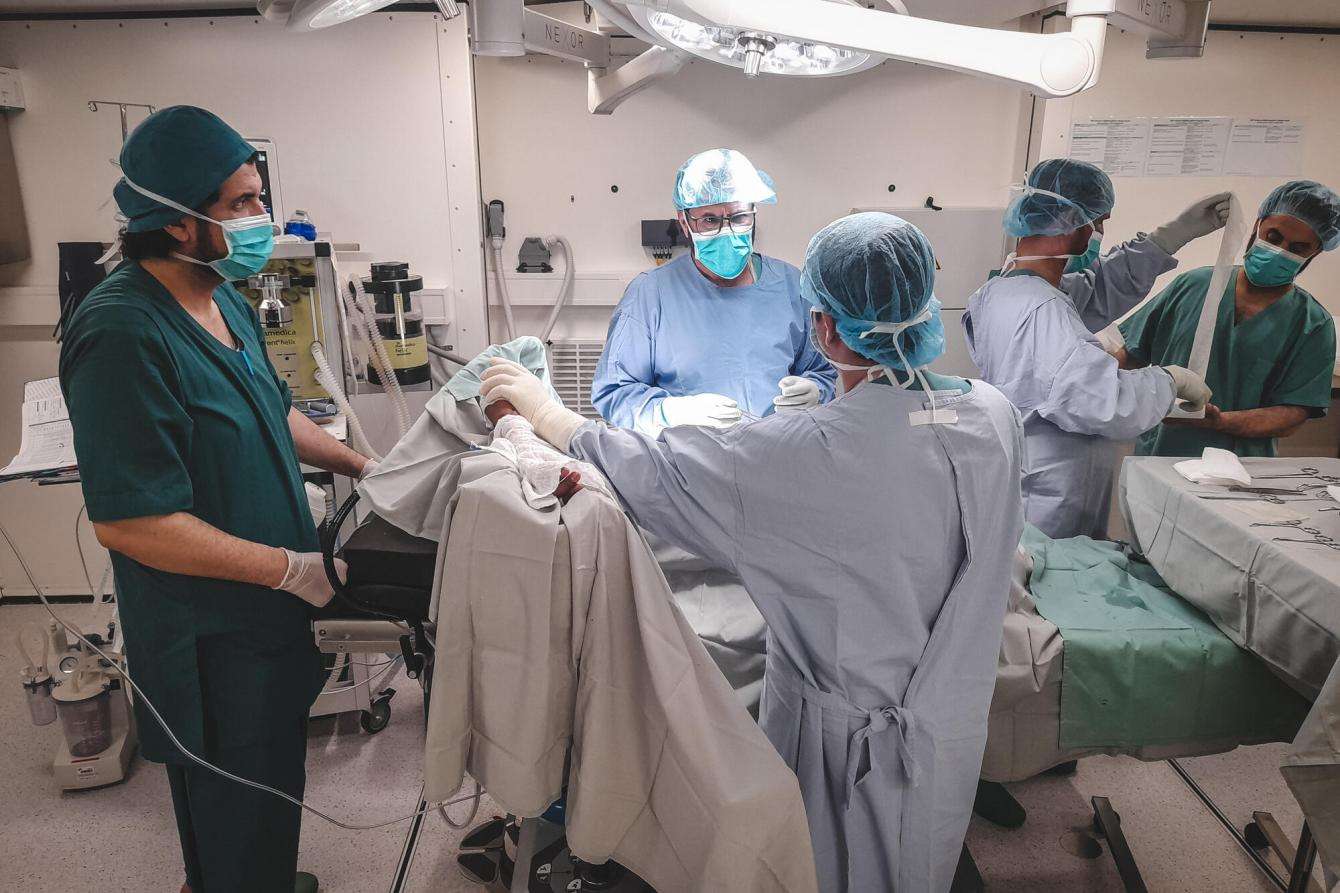
Improved security makes it safer to seek care
In early September 2021, improved security conditions allowed some people to leave their homes without the fear of being caught in the crossfire, meaning most MSF teams saw an increase in patients.
That month, the number of hospitalizations of malnourished children at Herat Regional Hospital reached 200 percent above the facility’s bed capacity. This spike was likely caused by a lack of functioning health services in the area, the worsening economic crisis, and persistent drought.
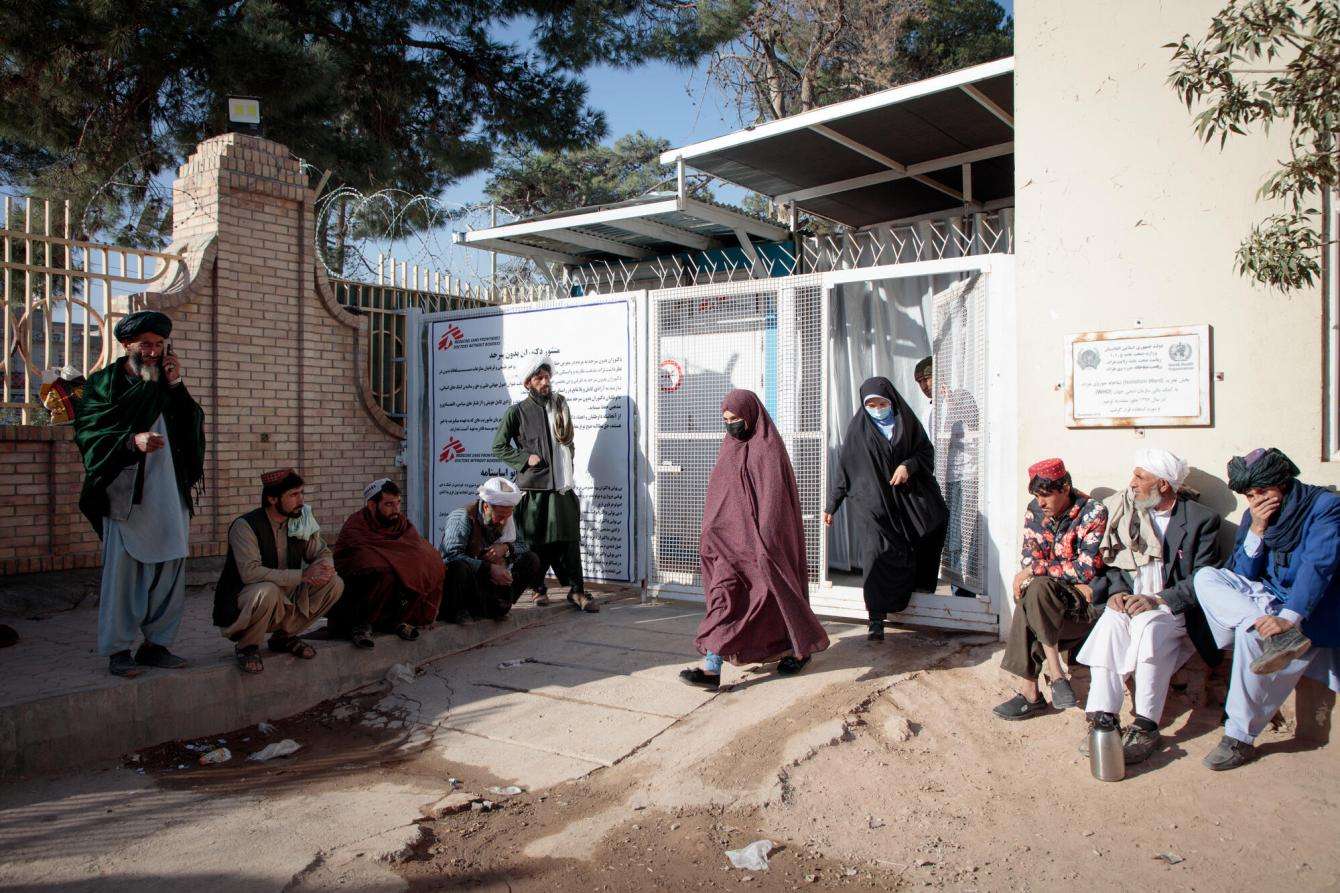
The ripple effects of the economic crisis
Afghanistan’s health system—dependent on foreign funding since the US-led invasion in 2001—has been underfunded, understaffed, and dysfunctional for years. MSF witnessed severe funding cuts to the Afghan health system in the months after the IAE took control, as many medical organizations scaled down their work and governments and organizations suspended funding.
“Very quickly, we saw the capacity of the health system deteriorate,” said Lou Cormack, MSF project coordinator in Khost. “Public facilities had fewer and fewer drugs as the supply chain was broken. Staff weren’t getting paid. The public health system was barely functioning anymore.”
Foreign funding has now resumed but at significantly lower levels than before August 2021, and specialized health care facilities no longer receive international funding. The ripple effect of the economic crisis and economic measures taken against the new government are being felt nationwide. Food prices have soared. Millions of people are out of work and struggling to find employment. Those with jobs are now supporting more family members, and many people do not have enough to eat or delay seeking health care as they cannot afford it.
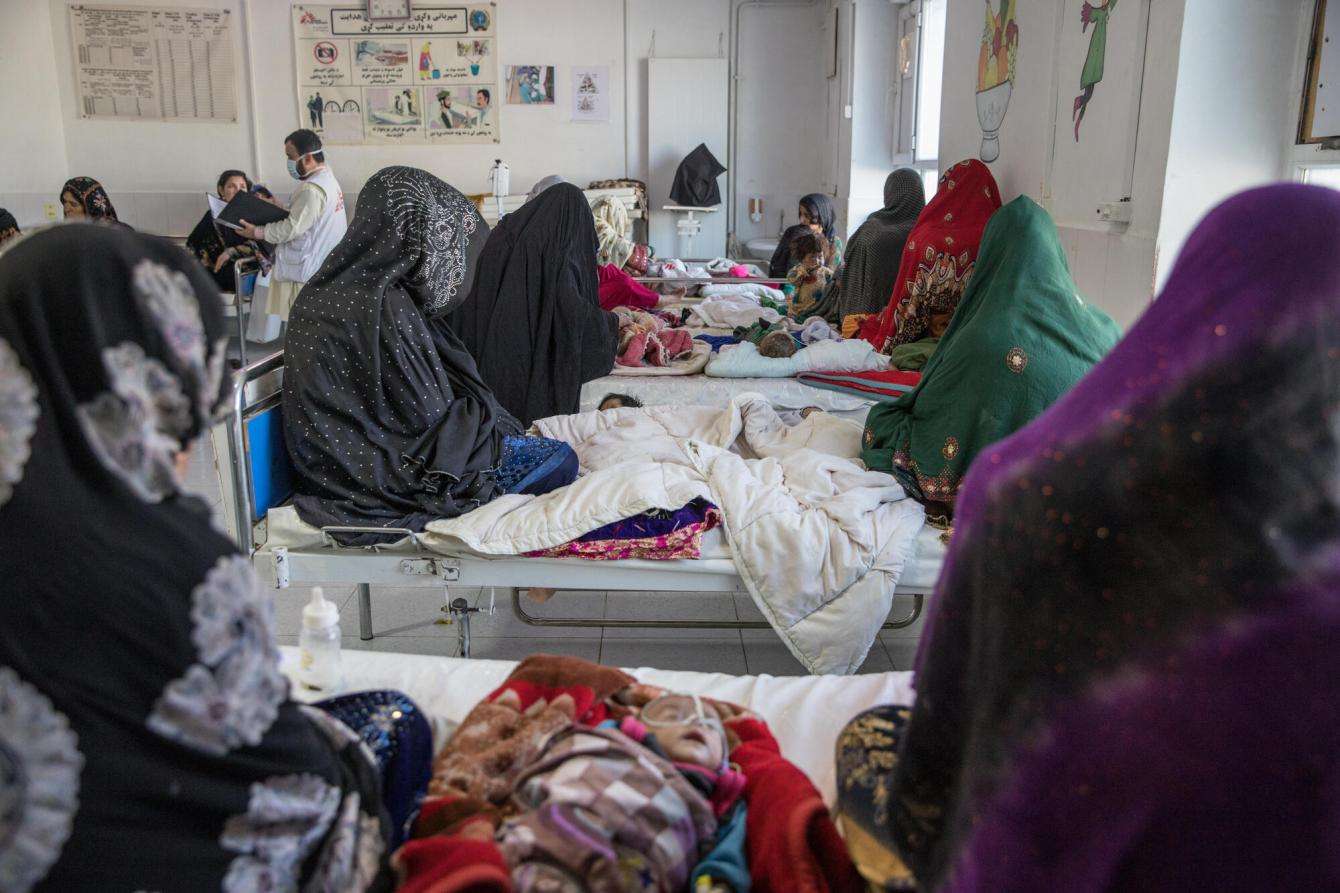
MSF does not accept government money for its work in Afghanistan. And, while we’ve faced challenges accessing funds to pay staff salaries and cover operating costs, our teams have continued providing lifesaving medical care across the country.
Responding to more severe malnutrition peaks
MSF’s ITFCs in Boost hospital, in Helmand province, Herat Regional Hospital, and Kandahar are all operating above capacity. Malnutrition is endemic in Afghanistan, but this year the numbers soared: In May, 537 patients were admitted to MSF’s ITFC in Boost hospital—the highest number since MSF began working there in 2009.
MSF opened an ambulatory therapeutic feeding center in Kandahar in December 2021, and Herat in May 2022, to provide outpatient care to patients with severe and acute malnutrition. In Kandahar, MSF's team screened more than 16,500 children aged between six months and five years in the first six months of this year. More than 1,500 patients are currently enrolled across both programs, including approximately 570 pregnant or lactating women in Herat.
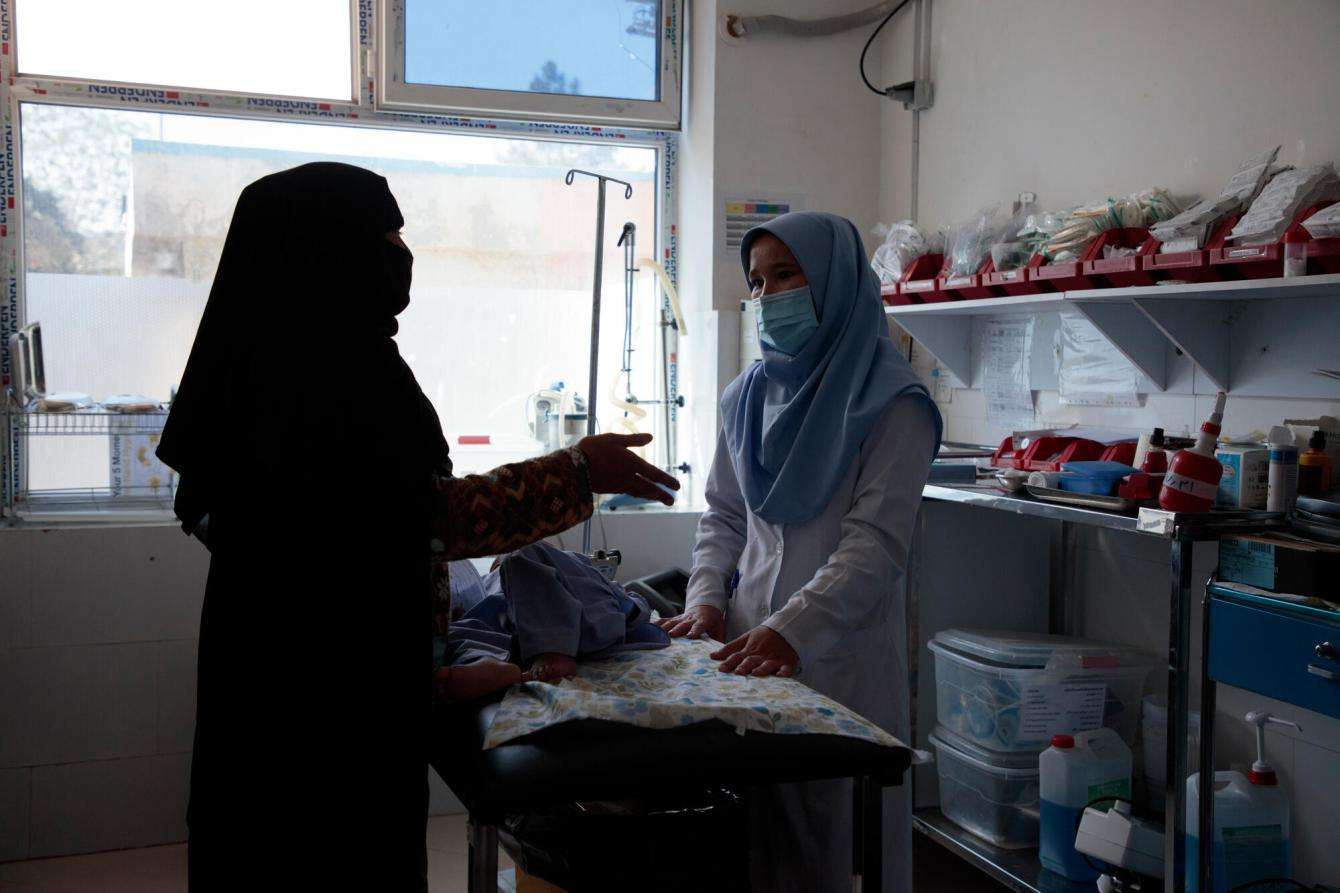
The dangerous consequences of compounding illnesses
Children are more vulnerable to severe illness from malnutrition if they are also fighting other diseases such as measles, malaria, pneumonia, and gastrointestinal infections. They are also more susceptible to these diseases if they are malnourished, as their immune systems are weakened. It’s a vicious cycle. Acute watery diarrhea, which peaks in summer, is particularly dangerous for malnourished children and is one of the leading causes of death in children in Afghanistan.

Inside Afghanistan’s child malnutrition crisis
read moreAfghanistan has historically seen a seasonal peak in measles cases. But in 2021 there were two peaks, leading to far more cases than in previous years. The surge did not slow in 2022, and our teams witnessed a high number of cases in the first three months of the year in four provinces where we treat measles cases: Helmand, Kabul, Herat, and Kunduz.
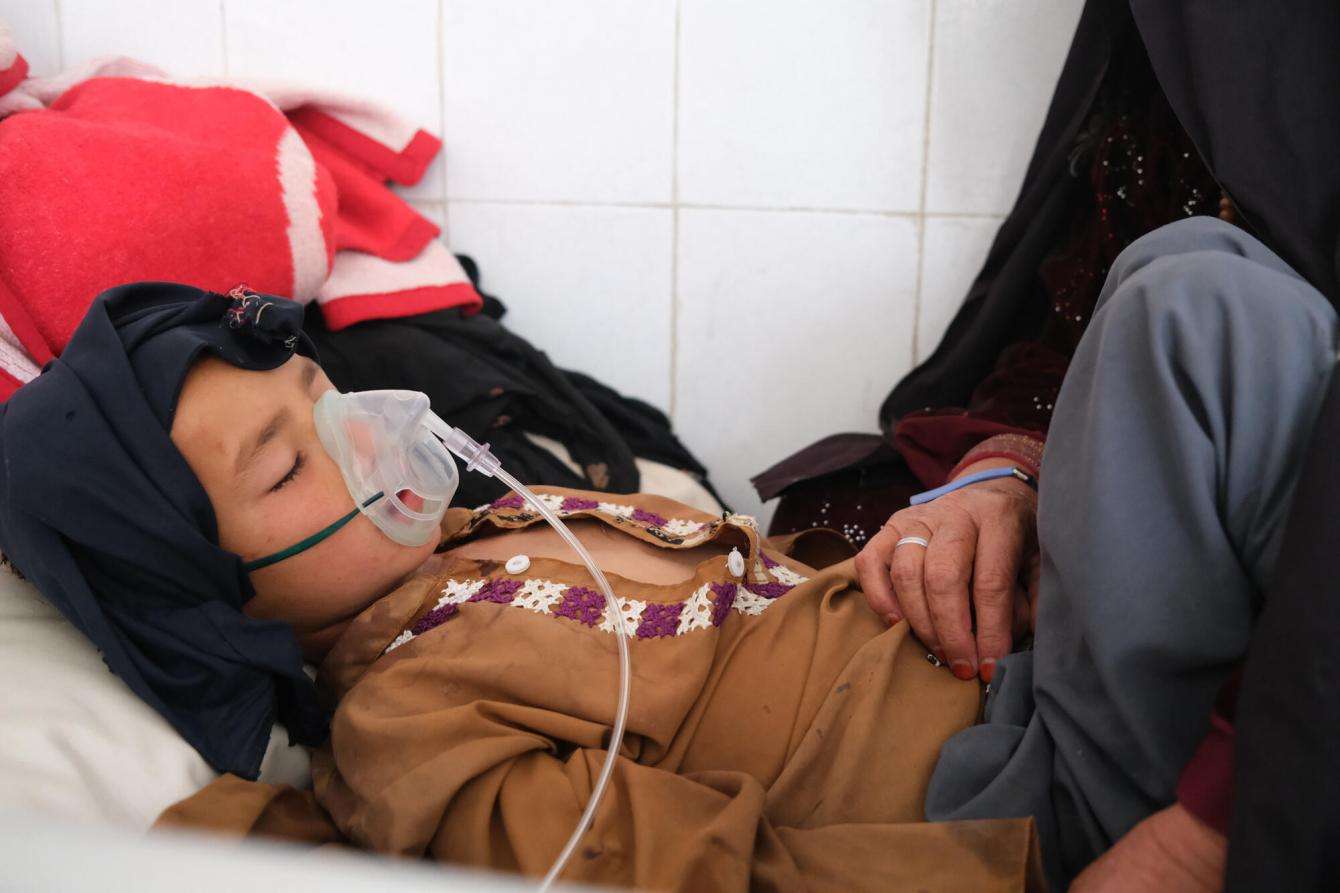
“Strengthening routine immunization is key to controlling measles outbreaks,” Dr. Hamayoun, MSF deputy medical coordinator in Afghanistan, said in April this year. “There is a willingness from the people in the community to get the measles vaccine. The problem is that there is no availability of care. Many people can’t afford to go to health facilities.”
Fortunately cases declined in April, and our teams are currently seeing fewer cases of measles in our facilities. The Ministry of Public Health carried out a vaccination campaign in some regions at the beginning of the year and another is planned in the coming months, though vaccination rates remain low and MSF teams will continue to monitor the situation.
The barriers women face accessing care
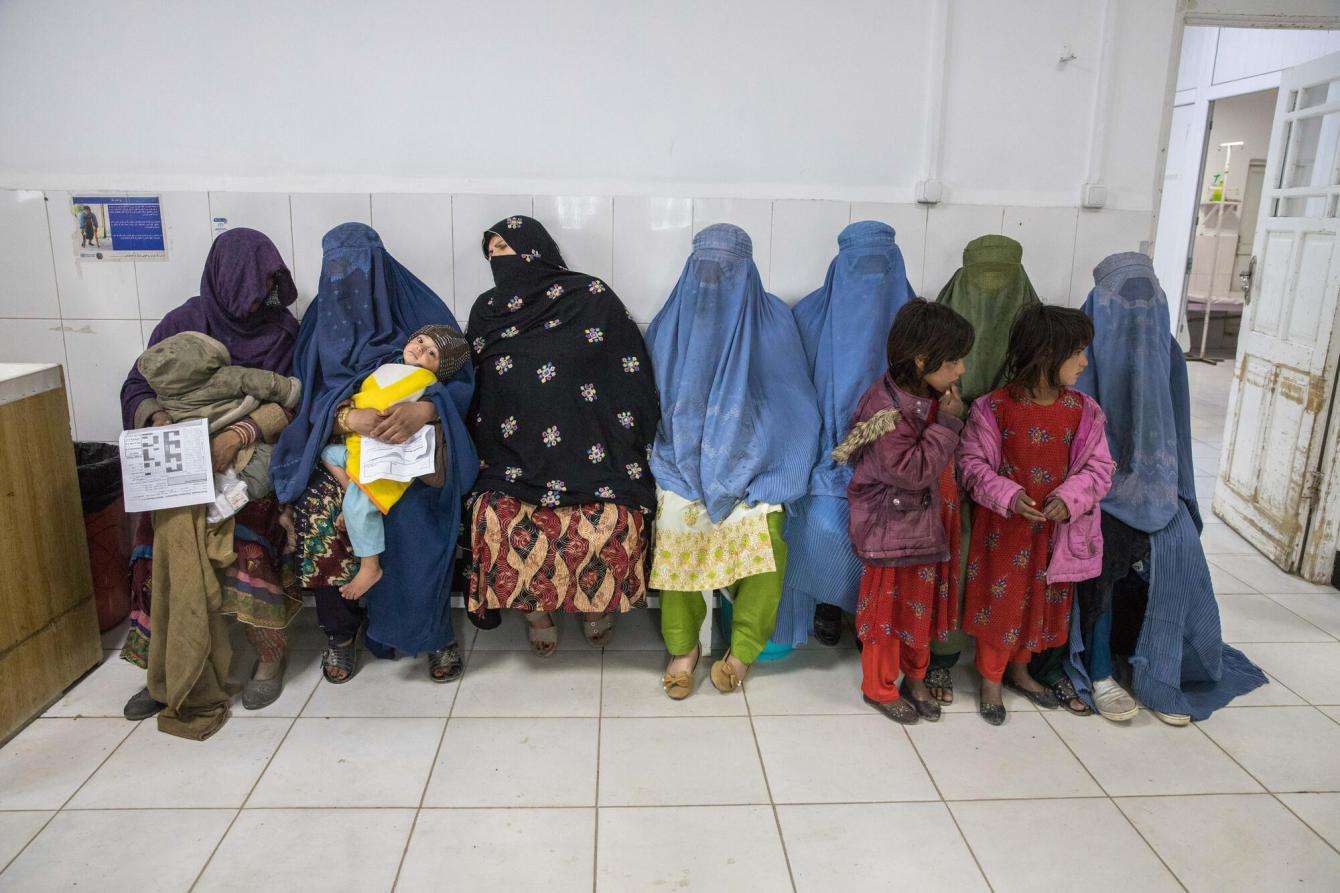
In September, MSF expanded the admission criteria of Khost maternity hospital to assist all pregnant women—not just those at high risk for complications. But it can still be difficult for pregnant women to access the care they need to have a safe delivery. In rural areas of Afghanistan, like Khost, most women do not have adequate access to essential obstetrics care for many reasons, including the shortage of female midwives and doctors.
More than half of our approximately 450 staff in Khost are female doctors, midwifes, cleaners, and administrators hired from the local community. Ensuring a separation between men and women in the Khost maternity unit is an important cultural practice in this area of Afghanistan. Having women available to provide sexual and reproductive health care not only increases women’s access to health care, but it creates a more comfortable and supportive environment for the patients.

Expanding access to urgently needed maternal health care in Afghanistan
Read moreAs some funding for local health centers in Khost was restored, the hospital reverted to its regular admission criteria in December 2021. In the first six months of 2022, MSF’s team helped to deliver more than 10,000 babies.
“I like to help the women who deliver in Khost,” said MSF midwife, Aqila, who finds great comfort in helping the women in her community. “The MSF maternity is a safe and great place for them. I delivered my own baby here. I love being a part of it.”
Providing care through thick and thin
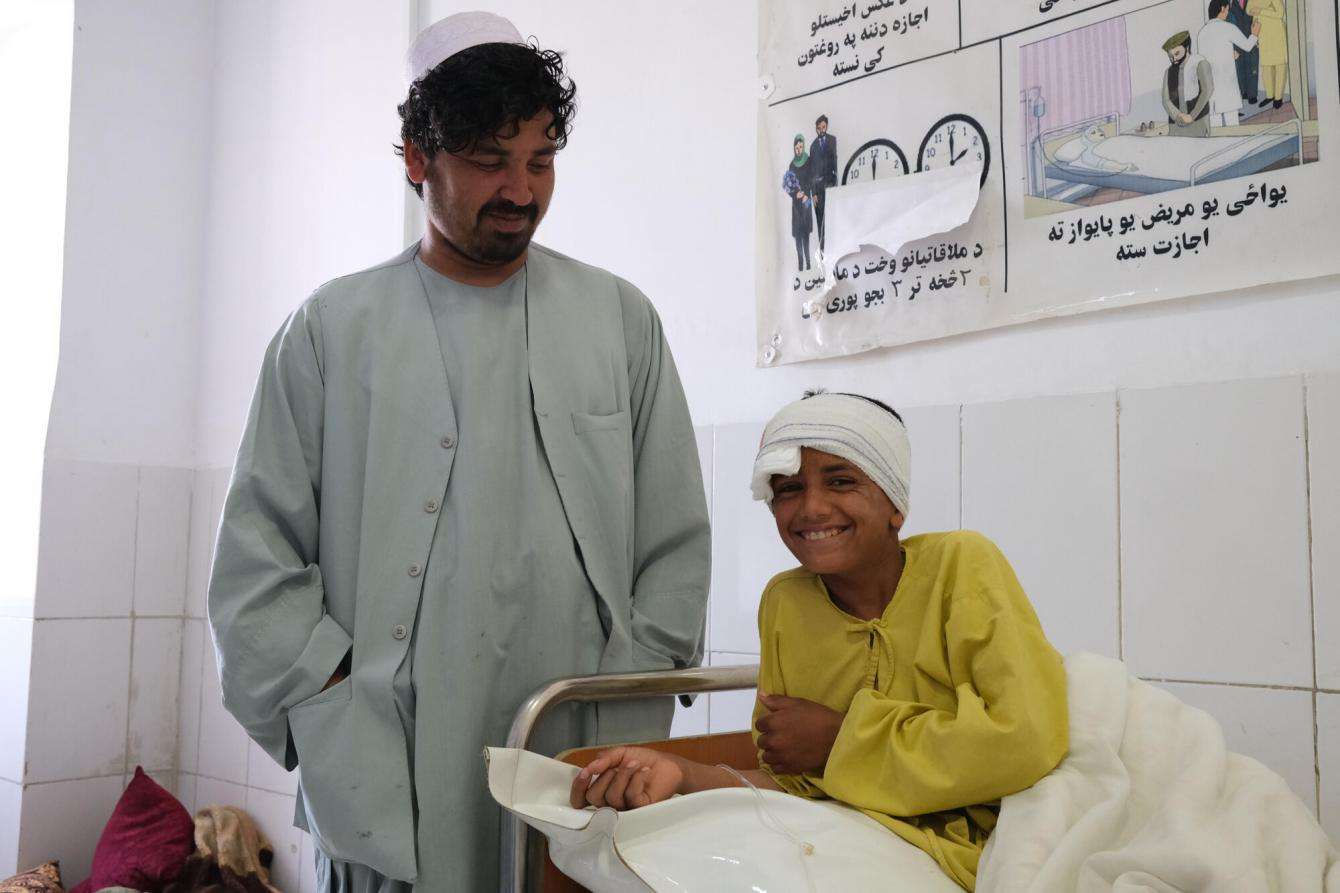
Despite decades of international aid and funding, Afghans still struggle to access basic medical care. The health system continues to be under-funded and under-resourced—as it has been for years. Government facilities face staff, training, medicine, and equipment shortages, and the few private clinics that are able to run are financially out of reach for many.
Donor funding is keeping the health care system afloat, but it is not a long-term solution: Humanitarian organizations and funding mechanisms will never be a substitute for a well-functioning public health system. Afghans urgently need a health care system that meets their needs.
While MSF continues to face many challenges such as disease outbreaks, natural disasters, and massive needs, our teams across Afghanistan are committed to providing free medical care, through thick and thin.
